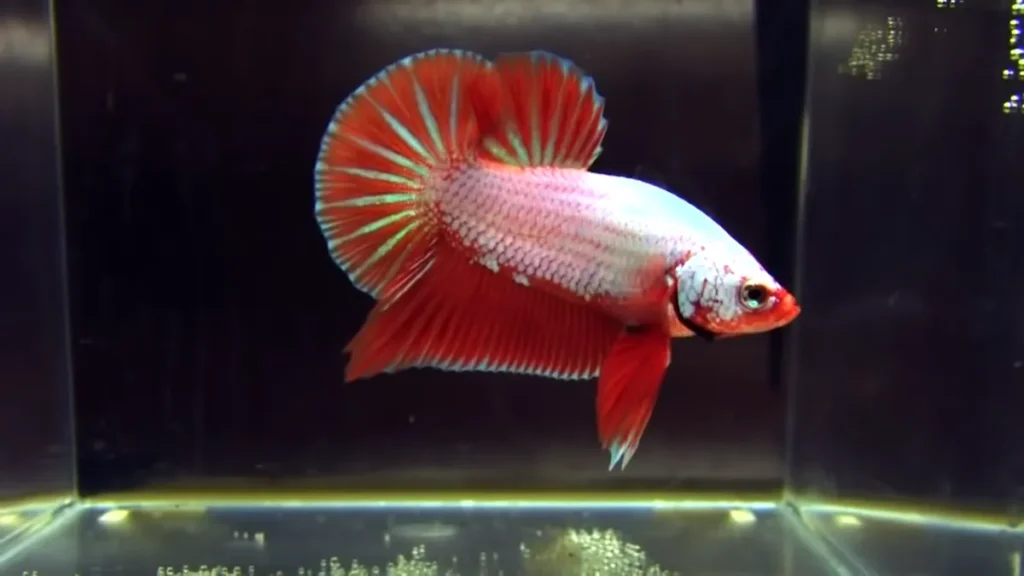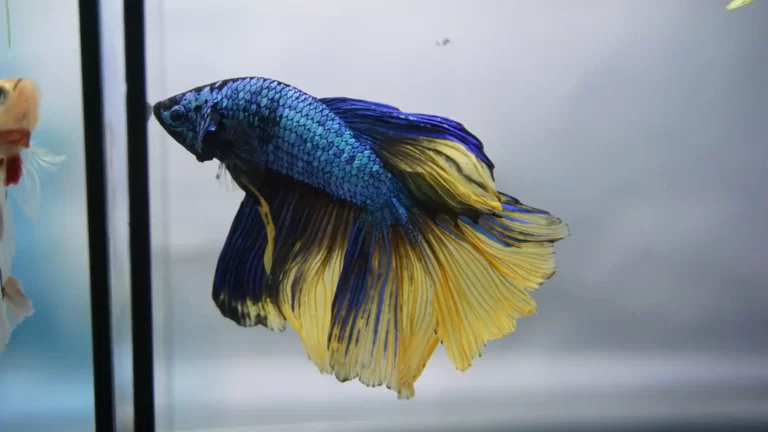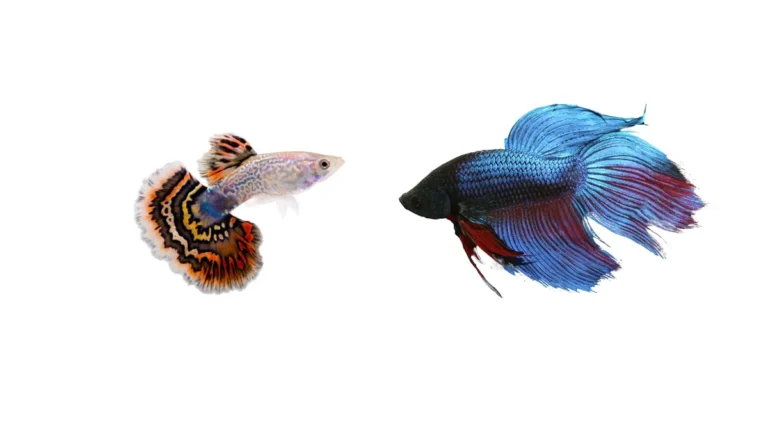Why Is My Betta Fish Twitching?
Greetings, fellow fish enthusiasts! Step into the captivating realm of Betta fish care, where vibrant colors and graceful fins come together to create mesmerizing underwater displays. If you’ve stumbled upon this article, you must be curious about your Betta fish’s peculiar behavior – twitching.
Worry not, for I, your aquatic companion, am here to unlock the secrets behind this intriguing phenomenon and guide you on a journey to ensure your finned friend’s well-being.

The Fascinating Behavior of Betta Fish
Before we dive into the nitty-gritty of Betta fish twitching, let’s take a moment to appreciate these marvelous aquatic creatures. Betta fish, also known as Siamese fighting fish, are renowned for their stunning colors and extravagant fins, making them popular choices for aquarium enthusiasts.
But there’s more to these fish than meets the eye. Betta fish have captivating behavior patterns that can be both mesmerizing and informative. Understanding their natural tendencies will help us comprehend why they twitch and how to provide them with a thriving environment.
Addressing the Concern of Betta Fish Twitching
So, let’s get down to business – why is your Betta fish twitching? There can be several reasons behind this peculiar behavior, ranging from environmental triggers to potential health issues. Let’s explore them one by one.
Uncovering the Reasons Behind Betta Fish Twitching
Stress and Anxiety Triggers
Just like us, Betta fish can experience stress and anxiety. Factors such as sudden changes in the environment, noisy surroundings, and improper handling can stress out your finned friend and lead to twitching.
Environmental Factors Causing Twitching
The tank’s environment plays a crucial role in your Betta fish’s well-being. Certain conditions can induce twitching, such as inadequate tank size, overcrowding, poor water quality, and aggressive tank mates.
Health-Related Issues and Ailments
Unfortunately, Betta fish, like all living beings, can suffer from health problems. Parasitic infections, skin irritations, swim bladder disorders, and neurological conditions are some health issues that may manifest as twitching.
Identifying Stressors and Environmental Causes
Stressors in the Betta Environment
To keep our Betta buddies happy, we need to identify and eliminate stressors. Ensuring your Betta has ample space, providing clean water, and choosing compatible tank mates can reduce stress-induced twitching.
Environmental Factors Leading to Twitching
Maintaining a stable and suitable environment is crucial. Monitoring and regulating water temperature, adjusting lighting conditions, and minimizing disturbances can help ease twitching.
Health Issues and Ailments Linked to Twitching
Common Health Problems

Let’s delve into some common health issues that might be causing your Betta fish to twitch. Parasitic infections and skin irritations can be treated with the right medications, while swim bladder disorders and neurological conditions require special care.
Recognizing Twitching Patterns and Associated Symptoms
To differentiate between regular behavior and worrisome twitching, pay attention to your Betta’s patterns. Note any behavioral changes, abnormal swimming, or physical abnormalities, as these can signal distress.
Related Post: Betta Fish Injured: Causes, Treatment, and Recovery
Steps to Address Betta Fish Twitching
Enough with the bad news! Let’s focus on positive steps to help our Betta companions thrive and reduce twitching.
1. Assessing Water Quality and Tank Conditions
Regularly test the water for key parameters such as pH, ammonia, and nitrate levels. Adjust the water parameters to optimal levels and ensure adequate filtration and aeration.
2. Improving the Betta’s Environment
Create a comfortable home for your Betta by providing sufficient hiding spots and plant coverage. Adjust lighting and noise levels to match their natural habitat, and introduce new tank mates carefully.
3. Treating and Preventing Health Issues
Consult a veterinarian if you suspect your Betta has health problems. Use appropriate medications for parasites and infections, provide special care for swim bladder disorders, and seek professional advice for neurological issues.
Preventing Twitching and Promoting Well-being
Prevention is the key to a happy Betta fish. Let’s explore some measures to keep our aquatic friends thriving.
1. Proactive Tank Maintenance
Regularly change and clean the water to maintain a healthy environment. Monitor water parameters and quality to keep your Betta in tip-top shape, and enrich their surroundings for mental stimulation.
2. Balanced Diet and Feeding Practices
A well-fed Betta is a happy Betta. Understand their nutritional needs and offer a varied and nutritious diet. Avoid overfeeding, which can lead to complications.
3. Minimizing Stress and Anxiety
A calm and serene environment is essential for your Betta’s well-being. Identify and address stressors early on, use gentle handling techniques, and create a peaceful atmosphere in their tank.
Conclusion By now, you should have a better understanding of why your Betta fish might be twitching and what you can do to address this concern. Remember, a happy Betta is a healthy Betta. So, take the time to create an optimal environment, provide proper care, and watch your finned friend flourish!
FAQs (Frequently Asked Questions)
Can overfeeding cause Betta fish twitching?
Yes, overfeeding can lead to digestive issues and subsequent twitching in Betta fish. Feed them in moderation to keep them healthy.
Is it normal for Betta fish to twitch occasionally?
Yes, occasional twitching can be a natural behavior, especially during sleep or while dreaming. However, frequent or continuous twitching may indicate a problem.
Can Betta fish get stressed from bright lighting?
Yes, Betta fish prefer low to moderate lighting. Bright lights can cause stress and anxiety, leading to twitching and other issues.
How often should I clean my Betta’s tank?
Regular water changes and tank cleaning should be done at least once a week to maintain water quality and keep your Betta healthy.
Related Posts:






